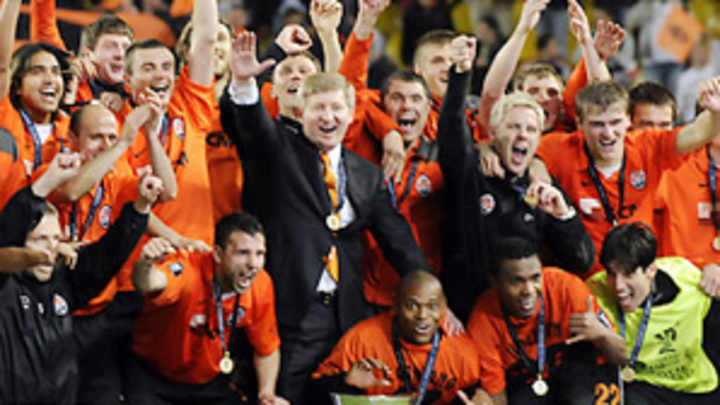Dawn of new ex-Soviet revolution?

Shakhtar Donetsk became the third former Soviet club to win the UEFA Cup in the past five years, following CSKA Moscow in 2004-05 and Zenit St. Petersburg last season.
That on its own doesn't quite make a trend, but when you consider that before '04, Soviet or former Soviet clubs had never won the Champions League or UEFA Cup (or their precursors, the European Cup and the Inter-City Fairs Cup), it becomes quite a remarkable achievement. Especially when we've witnessed three different former Soviet clubs triumph, rather than a single super-club. Throw in the fact that Shakhtar defeated Dynamo Kiev in an all-Ukrainian semifinal and it's hard to conclude that something is not going on.
The initial temptation is to credit these clubs' recent success to the deep pockets of oligarchs who simply stock the side with overseas talent. This may be true to some degree in the case of Shakhtar, a club that features a ridiculously wealthy nouveau riche owner (Rinat Akhmetov), a Romanian manager (MirceaLucescu) and no fewer than eight foreigners in the starting XI that defeated Werder Bremen in Wednesday's final (RECAP). But Zenit had a largely Russian core last year, as did CSKA three years prior to that.
The other popular theory is that clubs from the big Western European nations couldn't care less about the UEFA Cup and therefore field shadow teams, leaving the stage to lesser lights. The idea is that winning a domestic title or qualifying for the Champions League or, in some cases, avoiding relegation is far more important, so the UEFA Cup isn't taken seriously. This may be true for some clubs (Parma, for instance, effectively fielded its youth team in '04-05 in a seemingly desperate attempt to get knocked out so it could focus on avoiding relegation to Serie B). But the effects of this theory seem grossly overstated.
True, Werder Bremen was going nowhere in the Bundesliga, but UEFA Cup semifinalist Hamburg spent much of the season in the top three before a spell of bad results earlier this month. Last year's losing semifinalists were Bayern Munich (which won the Bundesliga) and Fiorentina (which qualified for the Champions League). The year before that, the semifinals featured Sevilla and Bremen, both of whom challenged for their domestic titles. So to some degree, the extent to which the UEFA Cup is snubbed is rather debatable.
Some argue that former Soviet clubs are aided by the fact that they either play their season in a calendar year, like Russia, or feature a long winter break, like Ukraine. The idea is that, if the teams can navigate their way through April, they'll be fresher than the opposition. This might also explain why German clubs tend to do so well in the competition. Five of the last 16 semifinalists were from Germany, where teams get a six-week break in the Bundesliga.
The problem with that theory? Well, if the secret is having a winter break, how does one explain that German and former Soviet teams do comparatively badly in the Champions League, which runs concurrently to the UEFA Cup? Or, in fact, how to explain the fact that teams from the English Premier League -- which has no winter break whatsoever -- do so well?
Could the answer be rather more simple? Could it be these guys are actually pretty darn good at what they do? Because, in fact, former Soviet sides didn't quite do that badly in the Champions League. Shakhtar beat Barcelona away and should have beaten it at home, but for two injury-time goals and some highly questionable officiating. Dynamo finished third in a tough group that included Arsenal, Fenerbahçe and Porto and, in fact, was rather unlucky. Zenit and Belarussian surprise BATE Borisov (which did exceptionally well just to qualify for the Champions League) had the misfortune of being drawn in a group that included Juventus and Real Madrid.
It's way too early to speak of some kind of former Soviet renaissance. And it's worth noting that just because the sides at the top are doing well, it doesn't mean things are healthy overall. That said, at a time when the European game seems to be increasingly dominated by the big three leagues (and, within that, by the Premier League), watching non-traditional powers grab some silverware can only be a good thing.
